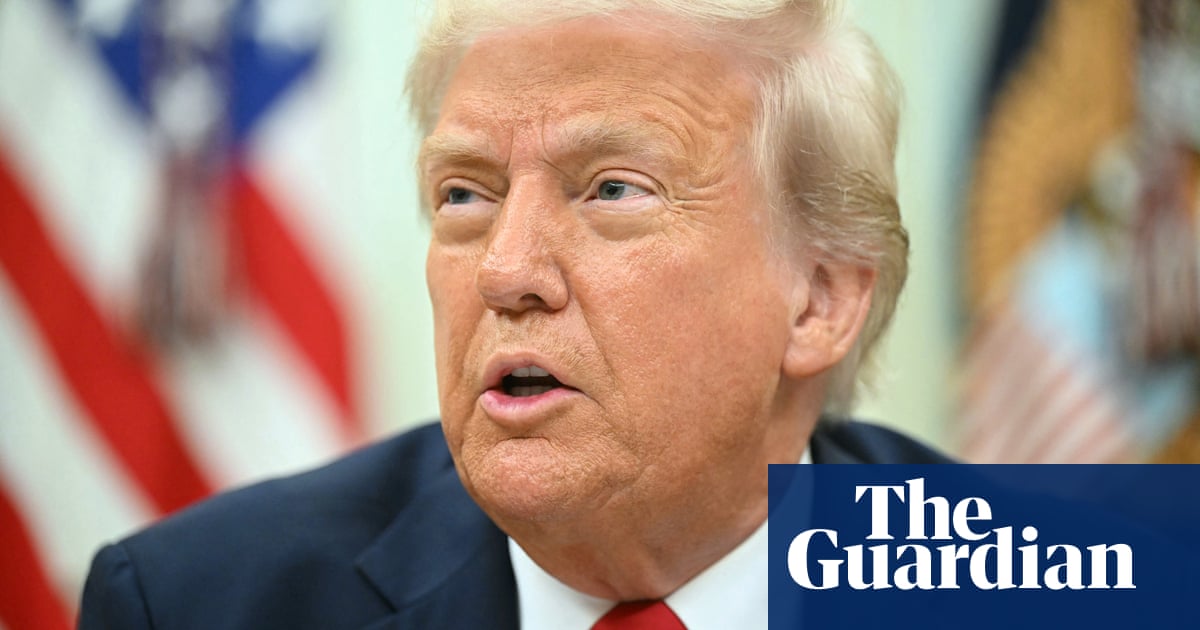When it comes to Trump-era scandals, the shameless responses to “Signalgate”, in which top administration officials discussing details of an impending strike in Yemen in a group chat without noticing the presence of a prominent journalist, should set alarm bells ringing for its brazenness and incompetence.
In a particularly jaw-dropping exchange, Tulsi Gabbard, the United States’ director of national intelligence, was forced to backtrack during a house hearing after she had said that there had been no specific information in the Signal chat about an impending military strike. Then, the Atlantic’s Jeffrey Goldberg published the chat in full, contradicting Gabbard’s remarks that no classified data or weapons systems had been mentioned in the chat.
What is Signal?
ShowSignal is a messaging app founded in 2012 that allows users to transmit texts, photos, videos and documents, as well as make audio and video calls. It uses end-to-end encryption, which protects messages against hackers and cyberattacks via an extra layer of security. Several other privacy features, such as the ability to automatically delete messages, have made it popular among communities such as journalists and activists that frequently deal with sensitive information.
Signal is run by the non-profit Signal Foundation and relies on donations to function, giving it a different business model than other encrypted messaging services such as Meta-owned WhatsApp. It does not track user data to the same extent as Meta and publishes its code to allow for public auditing of its security measures. Signal, like any messaging app, is still vulnerable to human error through methods like phishing attacks or spyware which can allow hackers to gain access to users’ devices. The Signal Foundation’s president called the addition of The Atlantic’s editor-in-chief a user error rather than a problem with her app’s security.
“My answer yesterday was based on my recollection, or the lack thereof, on the details that were posted there,” said Gabbard. “What was shared today reflects the fact that I was not directly involved with that part of the Signal chat.”
Then there was the US secretary of defense, Pete Hegseth who – staring straight down the camera – baldly stated: “Nobody was texting war plans, and that’s all I have to say about that.” The next day, Goldberg revealed that Hegseth himself had texted the precise timing of the attacks and the weapons systems to be used, specifically F-18 jets and MQ-9 drones.
And Michael Waltz, the White House national security adviser, was left scrambling on live television as he was quizzed by a Fox News anchor on how Goldberg’s number had ended up on his phone. “You’ve never talked to him before so how is the number on your phone?” asked conservative television anchor Laura Ingraham. “It gets sucked in,” Waltz, a former congressman and army special forces soldier, replied – without explaining how a number can get “sucked in” to a phone.
But despite all this, no one is really taking the prospects of an investigation seriously. At heart, this is about politics – and the fact is that Democrats simply don’t have the votes or the sway to deliver a body blow to the administration at this point.
It’s unlikely that anyone will be punished. Donald Trump has told his aides that he doesn’t want to give the Atlantic a scalp, and vice-president JD Vance responded forcefully during a trip to Greenland on Friday: “If you think you’re going to force the president of the United States to fire anybody you’ve got another think coming … I’m the vice-president saying it here on Friday: we are standing behind our entire national security team.”
For decades, national security was broadly seen as the last bastion of bipartisanship in Washington, an area where Democrats and Republicans put aside their differences for a general consensus on supporting the national interest. Members of Congress on the intelligence and foreign affairs committees often maintained cordial relationships. There was also an understanding that big scandals could jump the partisan line, and lead to serious repercussions even with tensions between the parties at their highest.
Scooter Libby, once chief of staff to vice-president Dick Cheney, was sentenced to prison after an investigation into the leak of the identity of covert CIA agent Valerie Plame. The Department of Justice under Barack Obama launched more Espionage Act investigations for leaking sensitive information than all previous administrations combined.
And the FBI, of course, launched a years-long investigation into Hillary Clinton for keeping emails on a home computer server that ultimately may have helped sway the elections. “It’s not the hypocrisy that bothers me; it’s the stupidity,” Clinton wrote in a New York Times op-ed on Friday. “We’re all shocked – shocked! – that President Trump and his team don’t actually care about protecting classified information or federal record retention laws … What’s much worse is that top Trump administration officials put our troops in jeopardy by sharing military plans on a commercial messaging app and unwittingly invited a journalist into the chat. That’s dangerous. And it’s just dumb.”
Observers have remarked that the scandal would have been far greater if it had taken place at a lower level in the intelligence community. Mid-level officers and defence officials would all face far harsher blowback if they were caught divulging the kind of information that Hegseth sent into the chat, including the specific timing of the strikes and the weapons systems to be used.
But the Trump administration believes that it can simply divert and divide public attention until there is a new scandal. That may be a winning strategy. Trump is to introduce tariffs this week that will probably dominate the news agenda for weeks. And his deputies are out on cable news every day, pushing back at the media for covering the scandal and suggesting that Goldberg somehow sneaked his way into the chat rather than being added directly by Waltz, the national security adviser.
“They have treated this as a media event to be spun rather than a grievous error to be rectified,” wrote Phil Klay, a military veteran and guest columnist for the New York Times. The early indications are that the Trump administration will skate through this scandal, crossing into new territory in Washington where even a major security leak can be repainted as the fault of the media for covering it.

 German (DE)
German (DE)  English (US)
English (US)  Spanish (ES)
Spanish (ES)  French (FR)
French (FR)  Hindi (IN)
Hindi (IN)  Italian (IT)
Italian (IT)  Russian (RU)
Russian (RU)  2 days ago
2 days ago
























Comments